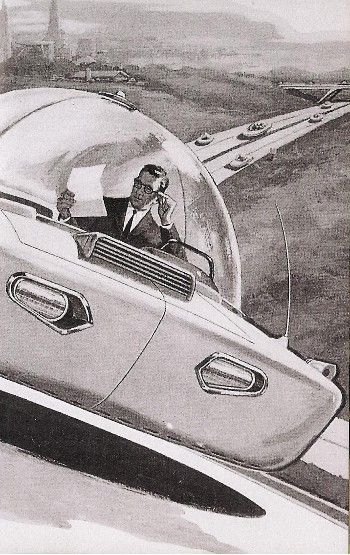Increasingly autonomous automobiles are bound to cause skill fade in drivers, so it’s baffling the car industry believes this loss an “unintended consequence” of our transition from human drivers to vehicles that operate themselves. What else would be the result of technology that keeps us in our lane while we do nothing? Google should be credited for arguing from early on that half measures would prove too dangerous—that driverless was an all-or-nothing proposition.
Traffic accidents have spiked sharply in the past couple of years, probably in part because of these tools that are supposed to make us safer. I would guess the bigger part of the issue is distracted driving, with smartphones being the overwhelmingly popular draw. Either way, microchips are fueling the problem.
Even if we make it to the other side of the driverless dream in a few years and accidents are greatly diminished as autonomous vehicles fill the highways and every last person can text at will from the backseat, the bigger question as we move forward is whether traveling through life inside of a computer—in more ways than one—will cause us to surrender fundamental aspects of humanness.
From Keith Naughton’s Bloomberg piece “Robots Are Ruining Your Driving Skills“:
If your car can hit the brakes in an emergency and check your blind spots, will that make you a worse driver? Increasingly, automakers are worrying it may.
Driver-assist technology that keeps cars in their lanes, maintains a safe distance from other vehicles, warns of unseen traffic and slams the brakes to avoid rear-end crashes are rapidly spreading from luxury cars to everyday Hondas, Nissans and Chevys. But these automated aids aimed at improving safety are having an unintended consequence: They’re degrading driving skills.
“There are lots of concerns about people checking out and we are trying to monitor that now,” said Adrian Lund, president of the Insurance Institute for Highway Safety. “Everything we do that makes the driving task a little easier means that people are going to pay a little bit less attention when they’re driving.”
For carmakers trying to address deteriorating driver skills, the stakes are immense. U.S. roadway deaths jumped 14 percent over the last two years, with more than 40,000 people dying in crashes in 2016. While speeding and more congested roadways bear some of the blame, distraction is another key culprit. Data released by the federal government show manipulation of handheld devices while driving, including texting or surfing the web, has been on the rise.
The semi-autonomous features that are the building blocks of tomorrow’s driverless cars were designed to compensate for inattentiveness behind the wheel. Instead, they may be enabling drivers to place too much faith in the new technology.•
Tags: Keith Naughton

